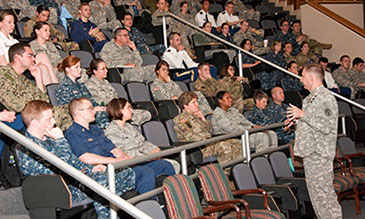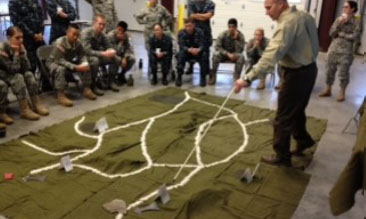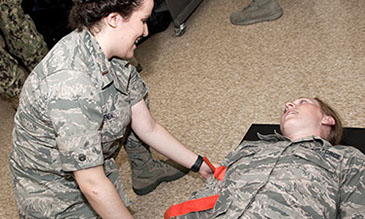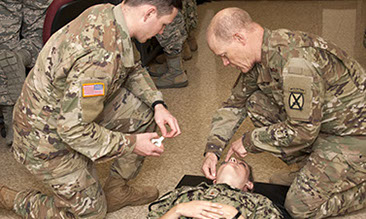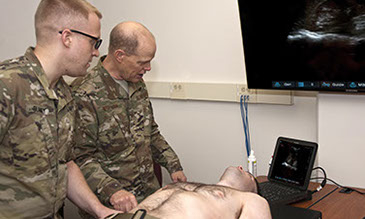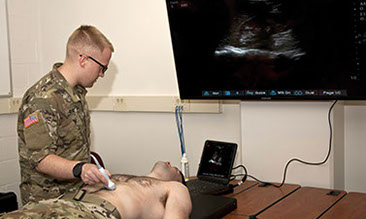OVERVIEW
In conjunction with the other pre-clerkship modules, the pre-clerkship military-unique curriculum relates the foundational knowledge, initiates the process of comprehending concepts, and introduces practical application of these new components of knowledge, skills, and attitudes.
MILITARY MEDICINE 100
The integrated pre-clerkship module, Military Medicine 100, comprises a number of classroom and experiential activities. The military medical practice component includes an introduction to the national command structure, force health protection measures, and joint health services planning and support. The military medical leadership component includes personality inventories, emotional intelligence, effective communications and team building, military decision-making process, troop-leading procedures, and many more. Medical Field Practicum 101 introduces students to the experience of patients in the out-of-hospital setting.
COMBAT MEDICAL SKILLS
Combat Medical Skills (CMS) is the primary group of classes that focus on essential out-of-hospital emergency skills. It begins after the New Year break and continues for the second half of the first year. Initial assessments and current management guidelines published by the Committee on Tactical Combat Casualty Care (TCCC). Skills are taught in small groups with plenty of time for hands-on practice include interventions for massive external hemorrhage, airway and respiratory compromise, shock, head injury, hypothermia prevention, pain control, wound dressing and bandaging, and splinting. The American Red Cross Basic Life Support (ALS) Course will be taught and TCCC skills will be tested under simulated combat environments during Medical Field Practicum 102.
POINT-OF-CARE ULTRASONOGRAPHY
The Point-of-Care Ultrasonography (POCUS) curriculum spans the entire pre-clerkship period and is fully integrated with the systems-based modules then continues into the post-clerkship period. It is designed to enhance student understanding of anatomy, physiology, pathology, and diagnostic adjuncts useful for medical decision-making. Military-specific applications and aspects of POCUS that can be especially useful in austere settings – from the battlefield to humanitarian assistance missions – receive major emphasis. Additional didactic and hands-on sessions in ultrasonography occur during a third-year post-clerkship didactic month called Bench to Bedside and Beyond, as well as real-world clinical employment during various mandatory and elective clerkships.

